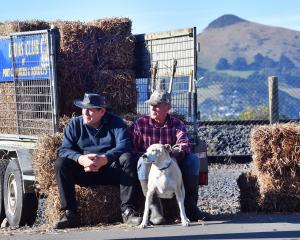
Prof Abbott, of the University of Otago, helped establish an innovative and effective joint clinic in the city in 2012.
He began his awareness-raising bicycle ride at Cape Reinga at 7.30am yesterday.
A tyre was later slashed by a sharp shell on Ninety Mile Beach about 10am, but after quick repairs, he completed, about 2pm, his initially planned 104km first stage of the 30-day trip to Bluff.
"I’m feeling great," he said.
His ride is part of the 2020 Tour Aotearoa Brevet, which involves hundreds of riders.
"We’re not delivering to patients and the public health system the most recommended treatments, according to the international clinical practice guidelines," he said.
"In clinical research there’s a terrible statistic that it takes on average 17 years for knowledge from research to make it into mainstream practices."
Since 2002 it had been known that exercise therapy reduced osteoarthritis (OA) pain and disability.
In New Zealand this therapy was "still not being delivered routinely" and neither was it publicly-funded routinely.
His most recent research showed that if an evidence-based exercise therapy programme was provided nationally for people with osteoarthritis, it would cost a maximum of about $25million annually, but would generate savings to the health system and health gains of more than $450million annually.
He felt compelled to produce a "real world impact" from the strong research results.
On a bicycle or speaking at a scientific conference, Prof Abbott pedals his message that rates of osteoarthritis are rising rapidly and the health system is not delivering the recommended treatments efficiently.
High-quality care would mean big health gains for Kiwis and "huge savings for the health sector".












